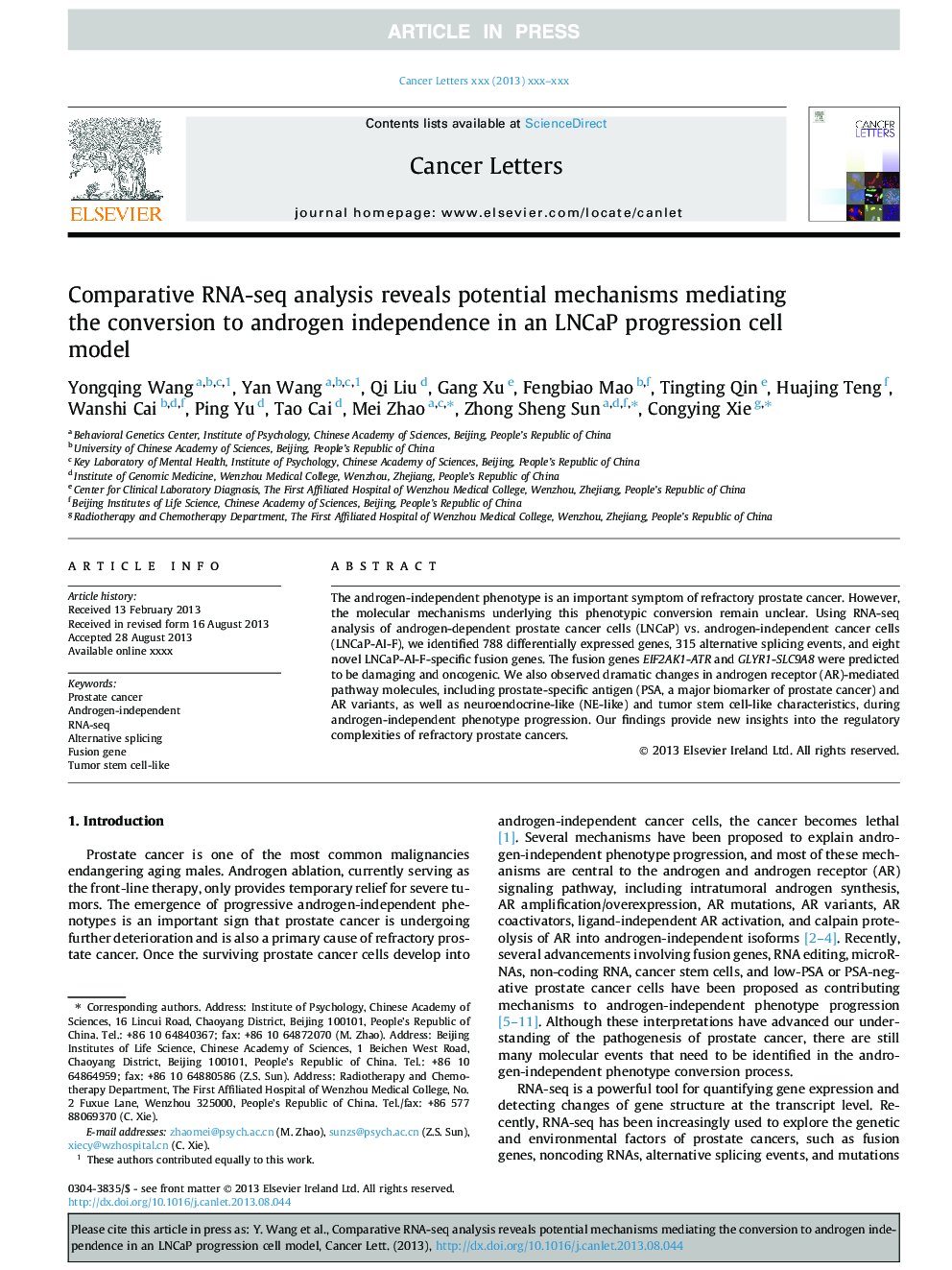| Article ID | Journal | Published Year | Pages | File Type |
|---|---|---|---|---|
| 10899871 | Cancer Letters | 2014 | 9 Pages |
Abstract
The androgen-independent phenotype is an important symptom of refractory prostate cancer. However, the molecular mechanisms underlying this phenotypic conversion remain unclear. Using RNA-seq analysis of androgen-dependent prostate cancer cells (LNCaP) vs. androgen-independent cancer cells (LNCaP-AI-F), we identified 788 differentially expressed genes, 315 alternative splicing events, and eight novel LNCaP-AI-F-specific fusion genes. The fusion genes EIF2AK1-ATR and GLYR1-SLC9A8 were predicted to be damaging and oncogenic. We also observed dramatic changes in androgen receptor (AR)-mediated pathway molecules, including prostate-specific antigen (PSA, a major biomarker of prostate cancer) and AR variants, as well as neuroendocrine-like (NE-like) and tumor stem cell-like characteristics, during androgen-independent phenotype progression. Our findings provide new insights into the regulatory complexities of refractory prostate cancers.
Related Topics
Life Sciences
Biochemistry, Genetics and Molecular Biology
Cancer Research
Authors
Yongqing Wang, Yan Wang, Qi Liu, Gang Xu, Fengbiao Mao, Tingting Qin, Huajing Teng, Wanshi Cai, Ping Yu, Tao Cai, Mei Zhao, Zhong Sheng Sun, Congying Xie,
